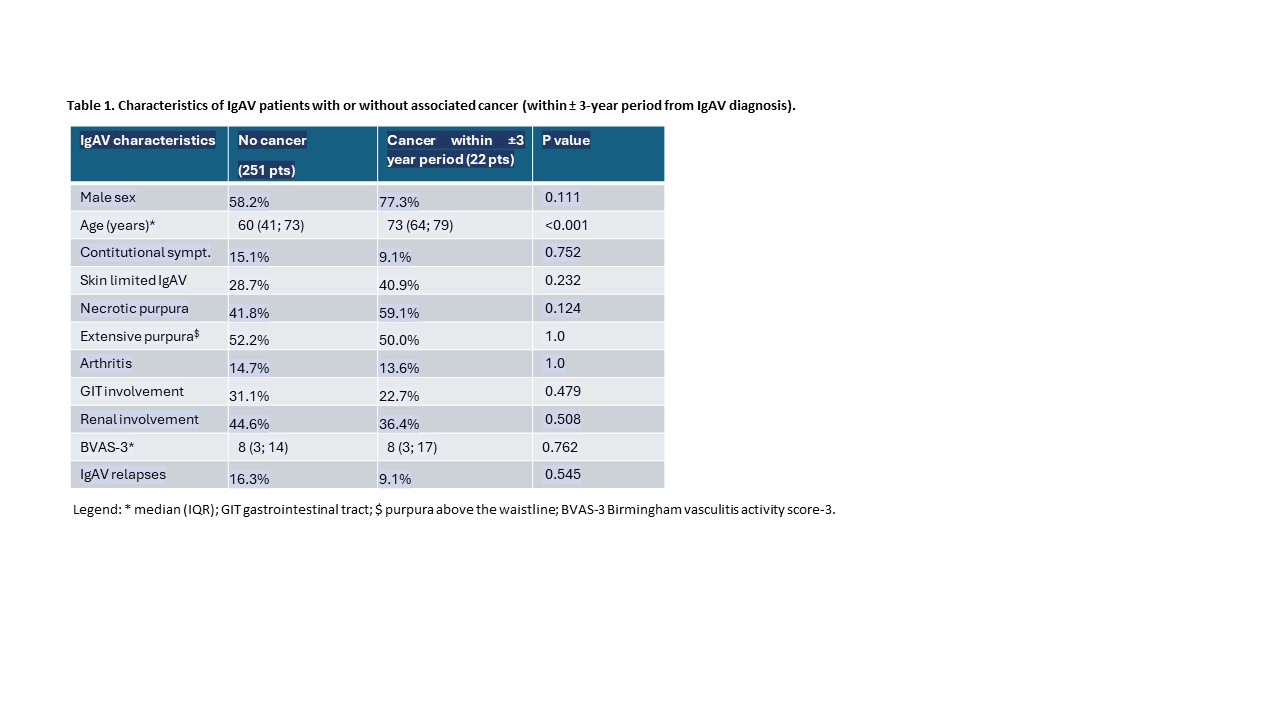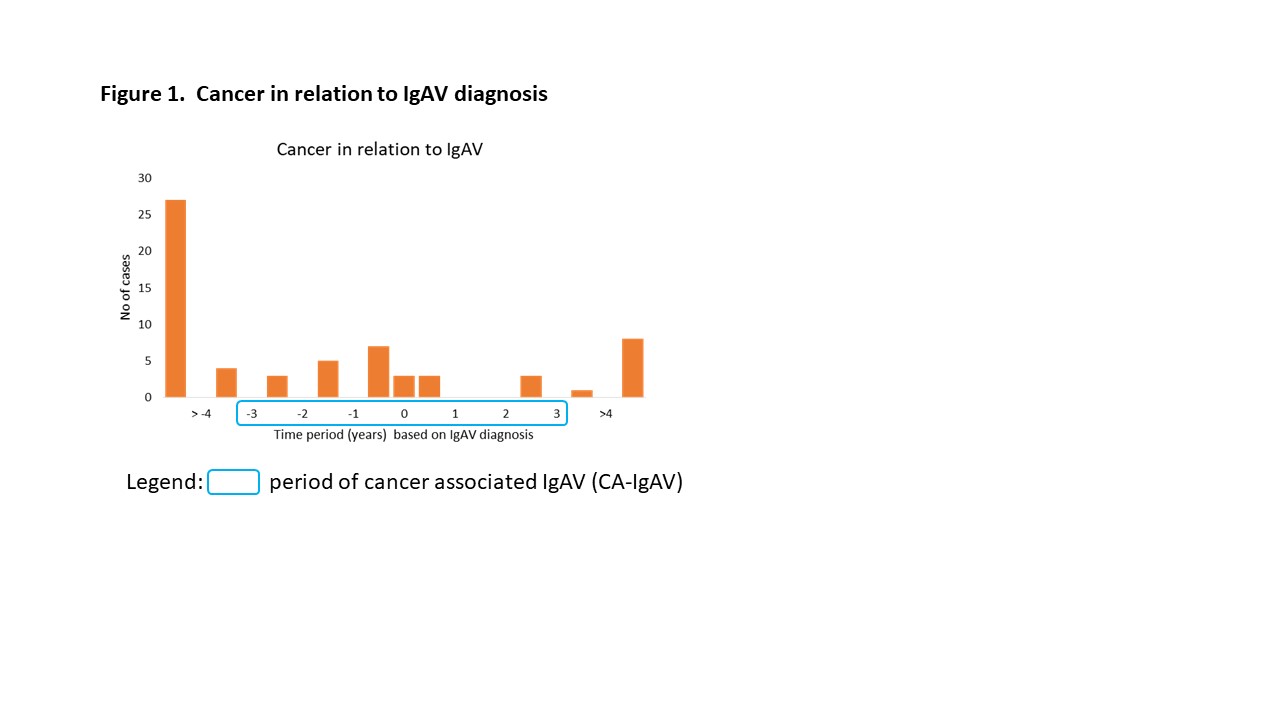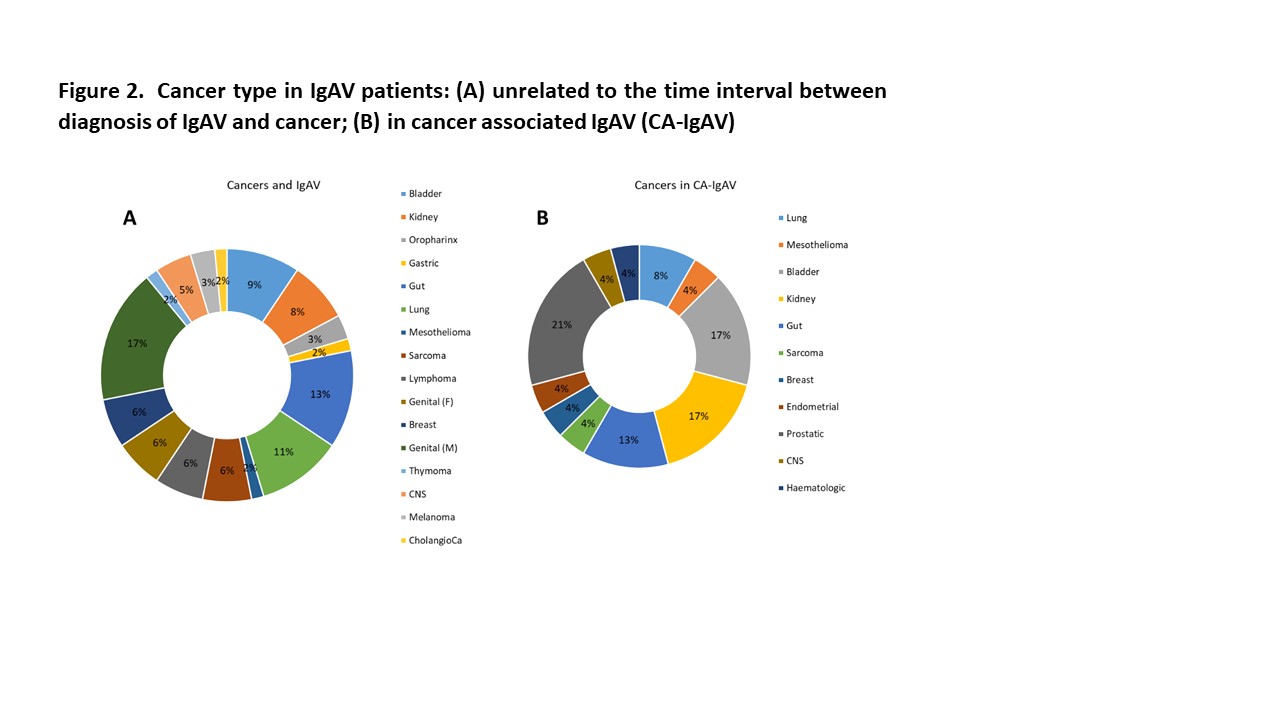Session Information
Date: Monday, November 18, 2024
Title: Vasculitis – Non-ANCA-Associated & Related Disorders Poster III
Session Type: Poster Session C
Session Time: 10:30AM-12:30PM
Background/Purpose: Cancer has been reported as a potential trigger of IgA vasculitis (IgAV) in adults, however data on this topic is scarce. The aim of our single centre study was to determine frequency and location of cancer in adult IgAV patients and to search for potential differences of cancer associated IgAV compared to non-cancer IgAV group.
Methods: We included 305 histologically proven adult IgAV patients, diagnosed between January 2010 and November 2022, and followed at our secondary/tertiary rheumatology centre of a median (IQR) of 34.7 (13.1; 74.4) months. Cancer episodes were recorded and allocated into 3 groups according to their temporal relation to IgAV: 1) cancer diagnosed prior to IgAV; 2) cancer diagnosed concurrently with IgAV; 3) cancer diagnosed during IgAV follow-up. Cases of non-melanoma skin cancer were excluded from analysis.
The term cancer associated IgAV (CA-IgAV) was defined as a cancer diagnosed within a 3-year period before or after IgAV diagnosis (the definition was adopted from the cancer associated myositis). Differences in the baseline characteristics were compared between the CA-IgAV and IgAV patients without ever-cancer.
Results: Fifty-four out of 305 IgAV patients (17.7%) developed in total 64 different cancer episodes (10 patients developed two different cancers). There were 46 (71.2%) cancers diagnosed prior to IgAV (and in 3/46 patients cancer was (still) active at the time of IgAV diagnosis), 3 (4.7%) cancers were diagnosed concurrently with IgAV, and 15 (23.4%) cancers were diagnosed during IgAV follow-up. Twenty-four (37.5%) cancer episodes (developed in overall 22 patients) fulfilled the definition of CA-IgAV (Figure 1). Figure 2 shows the type/location of all cancers recorded in IgAV patients (panel A), and cancers defined as CA-IgAV (panel B). The three most frequently diagnosed cancers in CA-IgAV group were prostatic cancer, renal cancer and bladder cancer (together representing 55% of all CA-IgAV cases). In table 1 clinical characteristics of CA-IgAV patients compared to IgAV patients without cancer are shown. Except of age none of IgAV’s characteristics was predictive of malignancy. During follow-up 4 patients with CA-IgAV died due to cancer progression.
Conclusion: Urogenital tract cancers predominated in adults with CA-IgAV. Age but not IgAV’s characteristics were associated with cancer risk in IgAV.
To cite this abstract in AMA style:
Hocevar A, Ostrovrsnik J, Jurcic v, Rotar Z. What Do We Know About Malignancies in IgA Vasculitis? [abstract]. Arthritis Rheumatol. 2024; 76 (suppl 9). https://acrabstracts.org/abstract/what-do-we-know-about-malignancies-in-iga-vasculitis/. Accessed .« Back to ACR Convergence 2024
ACR Meeting Abstracts - https://acrabstracts.org/abstract/what-do-we-know-about-malignancies-in-iga-vasculitis/



